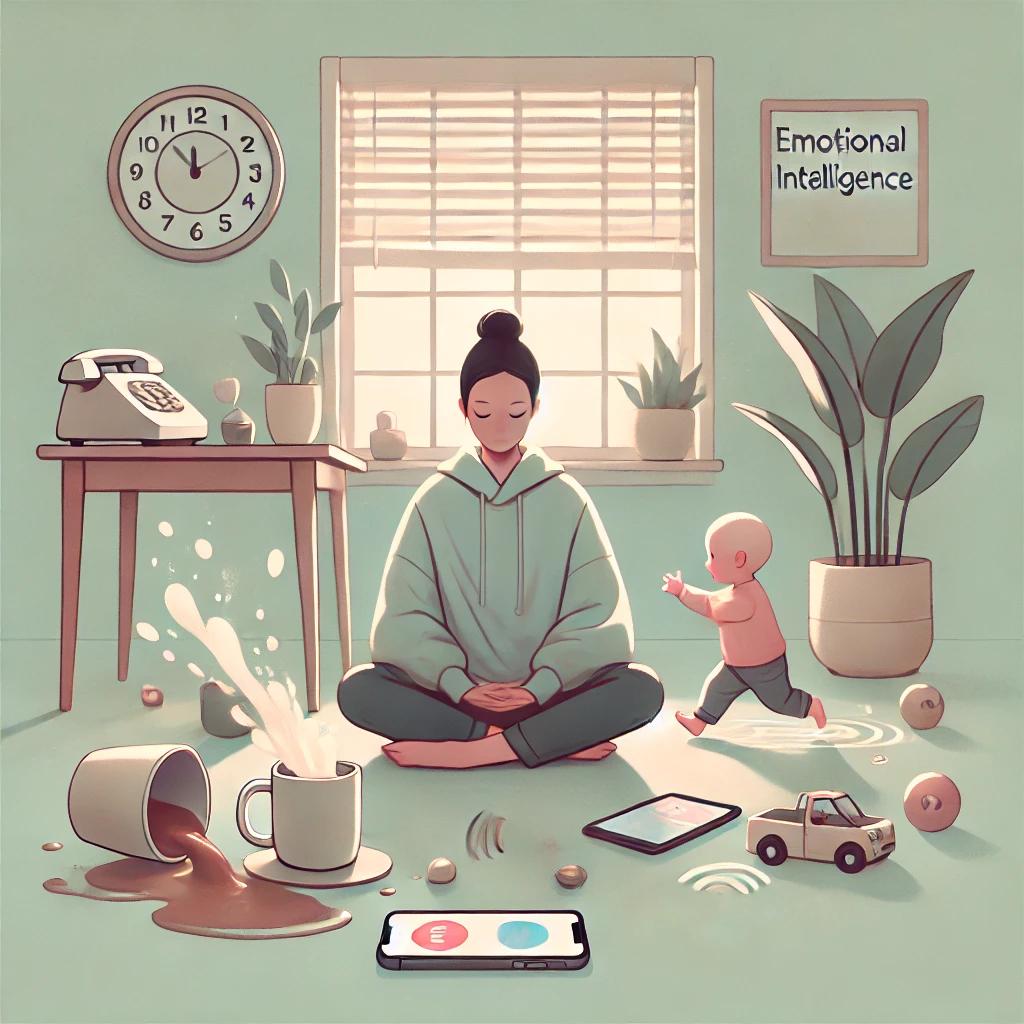Emotional Intelligence: The skill You’re Underestimating
Picture this: It's been one of those days. Your e-mail is through the roof, your kid's having a temper tantrum, and to cap it all, your coffee spills on its way to your big meeting. You can feel the anger percolating, your patience fraying—do you lose your cool? Do you breathe in, recognize the moment, and navigate it calmly?
That is a decision, my friend, emotional intelligence in action.

What Is Emotional Intelligence?
Emotional intelligence (EI) has nothing to do with suppressing your feelings—it's all about recognizing, regulating, and applying them wisely. Psychologist Daniel Goleman dissected it into five areas of focus:
1. Self-awareness – Having an idea of what you are feeling and why.
2. Self-regulation – Regulating emotions rather than the other way around.
3. Motivation – Having an inner drive that goes beyond rewards.
4. Empathy – Understanding other people's feelings without judgment.
5. Social skills – Communicating and managing relationships effectively.
Let's now discuss how this matters in real life.
Why Emotional Intelligence Can Change Your Life?</ Instructor:
1. It Makes You More Capable of Dealing with Stress: Psychological research has revealed that individuals with high EI have lower cortisol levels (the stress hormone). They do not become easily agitated because they are able to identify their triggers and respond rather than react. Therefore, the next time your child does not want to put on his or her shoes when you are running late, EI will assist you in stopping and thinking rather than screaming.
2. It Makes Your Relationships Stronger: Ever met someone who just got you? That's emotional intelligence at play. Individuals with a higher EI listen, empathize, and answer with understanding rather than shutting down emotions. Research indicates that emotional intelligence is a better predictor of relationship satisfaction than IQ! Whether parenting, friendship, or romance—EI makes you connect on a deeper level.
3. It Spends Your Career Advancement: Do you think technical skills are going to propel you forward? Think again. Harvard studies revealed that EQ (emotional intelligence) is responsible for 90% of what separates high performers from the rest. Leaders who remain composed in chaos, play office politics with finesse, and inspire teams—those are the ones who succeed.
4. It Allows You to Make Better Decisions: Emotions influence our decisions more than we realize. When you're mad, you're apt to act impulsively. When you're scared, you'll overanalyze and get paralyzed. But people with emotional intelligence pull back, notice how they feel, and divorce emotions from reason before deciding.
5. It Enhances Mental Well-being: Low EI is associated with depression, anxiety, and even chronic stress disorders. When we fail to deal with emotions in the right way, they accumulate—resulting in burnout and emotional exhaustion. High EI enables us to label emotions, deal with them, and let them go in a healthy manner.
How to Develop Emotional Intelligence (Without Feeling Like You're in Therapy)
- Take a moment before responding. A mere 10 seconds can prevent an emotional outburst.
- Label your feelings. Rather than, "I'm angry," say, "I feel unheard." It changes your outlook.
- Practice empathy. When someone gets on your nerves next time, ask yourself: What are they possibly feeling?
- Acquire emotional vocabulary. Feelings are more than "happy" or "sad." Find nuances of emotions.
- Own up. Rather than blaming, ask yourself: What can I control in this situation?
Final Thought
At the end of the day, emotional intelligence is about being human. It's about feeling deeply but wisely, responding with kindness, and leading with understanding. And the best part? It's not something you're born with—it's something you can grow.
So, the next time life throws a curveball, remember: "Your response is your power."

